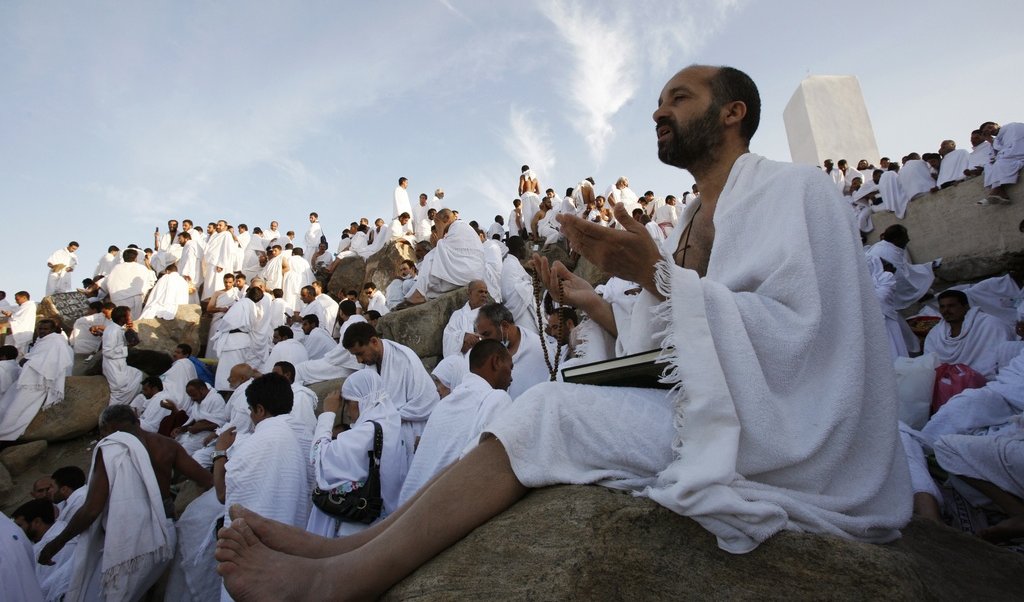Recently, I was sitting with my children and a few of their friends. We spoke about places in the world being portals of power. We discussed a place that holds special lessons for us.
Since Hajj season was approaching, it was fitting to discuss Makkah, Kaaba and Arafat.
Once a year, Muslims of every ethnic group, color, social status, and culture gather in Makkah and stand before the Kaaba praising Allah together. It is a ritual that is designed to promote the bonds of Islamic brotherhood and sisterhood where everyone is equal in the eyes of Allah.
This discussion triggered childhood memories. Being the only Muslim at a school in Australia I remembered how I was attacked by an Evangelist preacher.
The preacher supposedly a publisher of “Glad Tidings”, spoke at our school hall. Here he began preaching and explaining things new to me as a Muslim and I listened since I was encouraged by my parents to engage in debate and attend seminars to broaden my horizons.
I listened intently and with interest. When he raised the question, if there were non-Christians present I proudly raised my hand. I am a Muslim I said. Then the attack began.
He seemed to enjoy berating me as a Muslim in front of teachers and other students. Speaking about Hajj, he described it as heathen sacrificing sheep while in Christianity God sacrificed his son.
It was here that I made a decision to become informed and to teach others all that I knew.
I asked my late father and he explained that Hajj makes Muslims feel the real importance of life here on earth, and the afterlife, by stripping away all markers of social status, wealth, and pride. “During Hajj,” he stressed “all are truly equal.”
The purpose of Hajj
Here is where we understand that the specific purpose of Hajj is for the individual to be tested on physical, emotional, and spiritual levels.
In a huge gathering of mankind like hajj, each of us is like a speck of dust. However, every single pilgrim is invited by God to be His guest. That in itself is a blessing.
Bearing this in mind, we should be prudent of every act we do and of how we spend every second in the holy land.
Preparing for hajj, we must have the right mentality; otherwise, we would find it very difficult to cope. Take one thing at a time, have the intention to please God in the best way possible, and go with an open mind. Take Hajj as a journey.
Many Muslims grow up seeing pictures of the Kaaba. The images are so etched into our minds that we almost take it for granted. I personally have not been fortunate enough to perform the pilgrimage but was told by those who have been before how magical it is.
My father told me when I was younger, that a lifetime of seeing all those still photos of the Kaaba or even moving pictures on a giant television screen cannot prepare us for the feelings we will encounter seeing the Kaaba, in all its majesty and simplicity, live and close up for the first time.
Honoring Ibrahim and Hagar
During this spiritual trip, pilgrims honor Ibrahim as they circulate this great black cube. Later they pay homage to Hagar’s struggle as she looked for water for her baby Ismael, running back and forth between the hills. To this day, the Zamzam, which gushed for Hagar, flows. A miracle in itself.
Dressed in simple white clothes called Ihram, pilgrims perform acts of worship renewing their sense of purpose in the world. This simple dress demonstrates the Prophet Muhammad’s (Peace and blessings be upon him) words in his final sermon:
“There is no superiority for an Arab over a non-Arab, nor for a non-Arab over an Arab. Neither is the white superior over the black, nor is the black superior over the white except by piety.”
On Arafat pilgrims are spiritually renewed and saturated in Allah’s mercy as they squeeze in a lifetime of prayers before the sun sets.
Imagine leaving the place safe and secure with the knowledge that your slate has been cleaned and you are like a newborn child. Imagine performing the pilgrimage the fifth of Islam’s pillars.
It seems fitting somehow that my late father died on his favorite day. The day of Arafat.
Just as all pilgrims long to return someday to Arafat my father’s soul returned to its Creator.
Laid to rest
I clearly remember that day years ago where as the sun set I received a phone call telling me that the young man we appointed to perform the pilgrimage on behalf of my father finished the journey. He stoned the pillars symbolizing Satan. He completed the rituals.
My father’s words ring in my ears. “Not every Muslim will be fortunate enough to fulfill this act of worship. It is important we recognize we are being called there for a particular reason; it is part of our journey of growth.
If we get the chance, we must embrace the opportunity to perform and not postpone. We should recognize just how very lucky we are and let the voice in our heart recite the glorious greeting in His name”.
“Labbayk Allahumma Labbayk.”
* This article was first published in 2017

